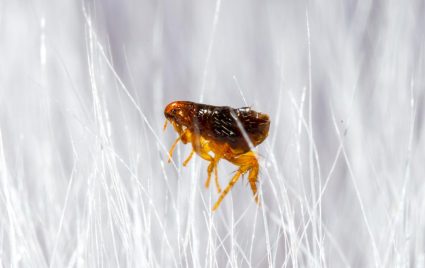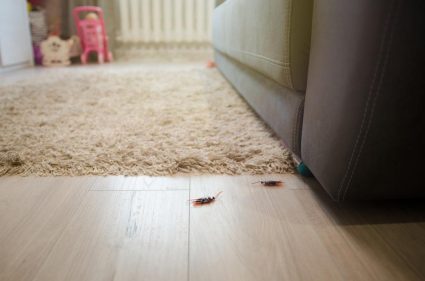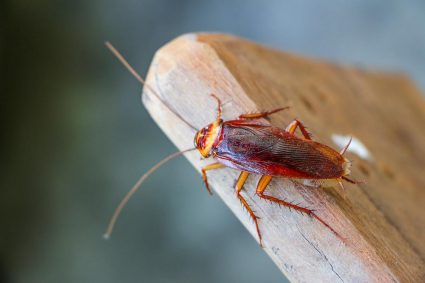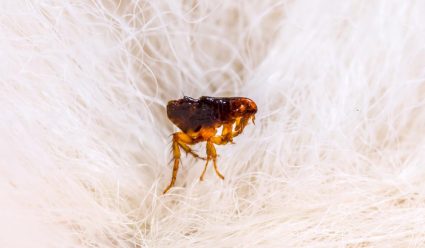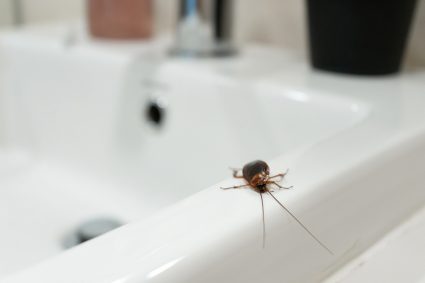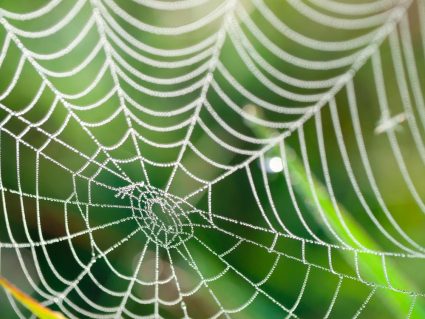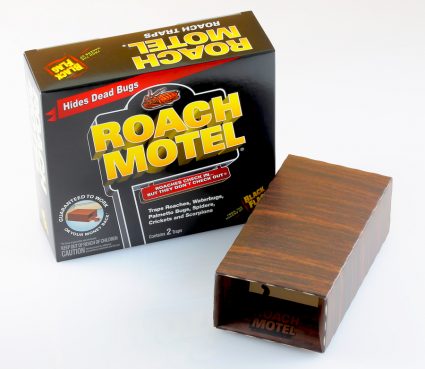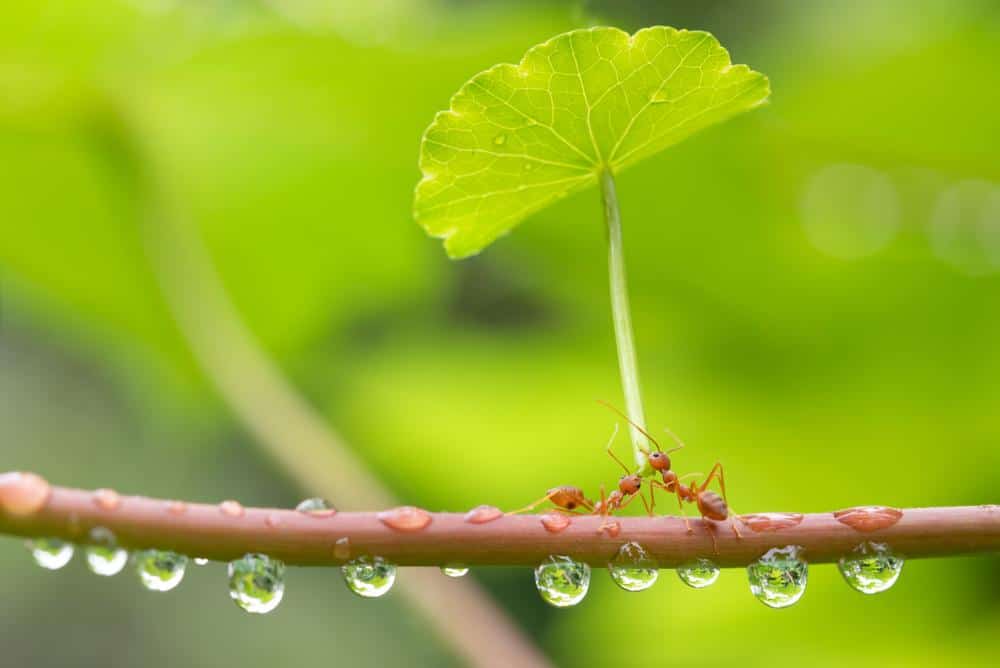
Ants can be a common and frustrating problem for gardeners. Despite their small size, these industrious insects can cause significant damage to your plants and disrupt the balance of your garden. So, how can you keep ants away from your plants? In this in-depth guide, we will explore a variety of natural deterrents and remedies, preventative measures, and common gardening practices to help you keep your garden ant-free.
To keep ants away from plants, use natural deterrents such as planting herbs with strong scents (like rosemary, lavender, and mint), sprinkling cinnamon around the base of the plants, using essential oils, or applying diatomaceous earth. A spray solution of cayenne or black pepper mixed with water, or a vinegar spray can also be effective. For severe infestations, consider using approved organic or chemical pesticides. Preventative measures include keeping the garden clean, controlling other pests, and avoiding overwatering plants.
Understanding the Ant Threat
Contrary to popular belief, not all ants are harmful to plants. Some ants, such as field ants, farming ants, leafcutter ants, Argentine ants, crazy ants, and carpenter ants, however, can pose a threat to your garden. These ants can cause physical damage, attract harmful pests, and even disrupt a plant’s photosynthesis process.
The Impact of Ants on Plant Health
Invasive ant species nesting at the roots of plants can disrupt their growth and photosynthesis. A study published in the Journal of Ecology found that plants with ant nests around their roots demonstrated higher baseline water stress, which means they are closer to drying out due to the loss of root structure integrity. The same study also found that invasive ants can reduce a tree’s photosynthesis by more than half and limit carbohydrate availability.
Natural Deterrents that Keep Ants Away
There are several natural deterrents that can help keep ants away from plants. Some of these include:
- Planting herbs and plants with strong scents, such as rosemary, lavender, catnip, peppermint, mint, thyme, and tansy.
- Sprinkling cinnamon around the base of the plants or throughout the garden area.
- Using essential oils like peppermint, spearmint, pennyroyal, garlic, and citronella.
- Applying diatomaceous earth (DE) around the plants and ant nests, as it is non-toxic to kids, birds, and pets but can effectively kill ants.
- Creating a spray solution with cayenne or black pepper mixed with water and spraying it on the garden.
- Using a vinegar spray made from equal parts white vinegar and water to spray areas where ants are common.
- Spraying a mix of essential oils, such as tea tree oil, citrus oil, and peppermint oil, diluted in water around the plants.
- Applying castile soap spray, which can be made by mixing a teaspoon of liquid castile soap with a pint of warm water.
Remember to test any spray solution on a small area of the plant first to ensure it doesn’t cause damage. Additionally, it’s essential to reapply these natural deterrents regularly, especially after rain or watering, to maintain their effectiveness.
Effective Organic and Chemical Pesticides
For more severe infestations, consider using approved organic or chemical insecticides. Organic methods include using cinnamon, cayenne or black pepper, lemon or vinegar, citrus repellent, soap solution, and diatomaceous earth. Chemical methods involve using insecticide baits, permethrin, fipronil, and bifenthrin.
Preventative Measures to Avoid Ant Infestation
To prevent attracting ants to your plants, consider planting ant-repellent plants like mint, lavender, rosemary, garlic, basil, and tansy around your garden. Other preventative measures include keeping the garden clean, maintaining a hot compost pile, using natural repellents like cinnamon, spraying a mixture of equal parts water and vinegar or water and lemon juice around the perimeter of your garden bed, sprinkling used coffee grounds in the soil, creating barriers around plants using diatomaceous earth, copper tape, or petroleum jelly, regularly inspecting your plants for signs of ant activity, controlling aphids and other pests that may attract ants, and avoiding overwatering plants.
Modifying Gardening Practices to Prevent Ant Infestation
Certain gardening practices can indeed attract ants to plants. To avoid attracting ants or to repel them naturally, use natural repellents and deterrents, keep your garden clean, control aphids and other pests, use physical barriers, introduce predators, practice companion planting, and maintain soil health.
Natural Remedies to Get Rid of Ants
If ants have already infested your garden, there are several natural remedies you can use to get rid of them. These remedies include using cinnamon, cayenne or black pepper, soapy water, diatomaceous earth, vinegar solution, cinnamon oil or powder, salt, lemon juice, peppermint oil, and a baking soda and vinegar mix.
In conclusion, ants can be a nuisance in the garden, but with the right strategies and preventative measures, you can keep your plants ant-free. Remember, the key is to maintain a healthy garden ecosystem and discourage ant infestation through natural deterrents and good gardening practices. If you continue to struggle with ants, consider seeking professional help.
Frequently Asked Questions
Can I use commercial ant baits to control the ant population in my garden?
Yes, commercial ant baits can be an effective way to control the ant population in your garden. These baits contain a food source mixed with a slow-acting insecticide that the worker ants carry back to the colony. Over time, this can help to reduce the number of ants in the garden. However, it’s important to use these baits responsibly and follow the manufacturer’s instructions to avoid harm to non-target species.
Why do ants attract aphids to my plants?
Ants and aphids have a mutualistic relationship. Aphids produce a sweet substance called honeydew, which ants love. In return for this food source, ants protect aphids from predators and even carry them to new plants to infest. This relationship can be harmful for your plants, as aphids can cause damage by sucking sap and spreading plant diseases.
How often should I reapply natural ant deterrents?
The frequency of reapplication can depend on several factors including the type of deterrent used, the severity of the ant problem, and the weather conditions. Generally, natural deterrents should be reapplied at least once a week, or after rain or watering, as these conditions can wash away the deterrent. However, always monitor your plants and adjust the frequency of reapplication as needed.
Are there any types of ants that are beneficial to my garden?
Yes, not all ants are harmful to your garden. Some types of ants can actually be beneficial. For example, certain ant species can help with pest control by preying on caterpillars, aphids, and other pests. They also help with soil aeration as they build their nests, which can improve soil health. However, it’s important to keep a balance as too many ants can still cause problems.
Can I use harsh chemicals to get rid of ants in my garden?
While harsh chemicals can be effective in getting rid of ants, they should be used as a last resort. These chemicals can harm beneficial insects, birds, and even pets that come into contact with them. Moreover, they can negatively impact the soil and the overall health of your garden. It’s always best to start with natural and organic methods to control ants. If these methods fail, consider seeking professional help.

